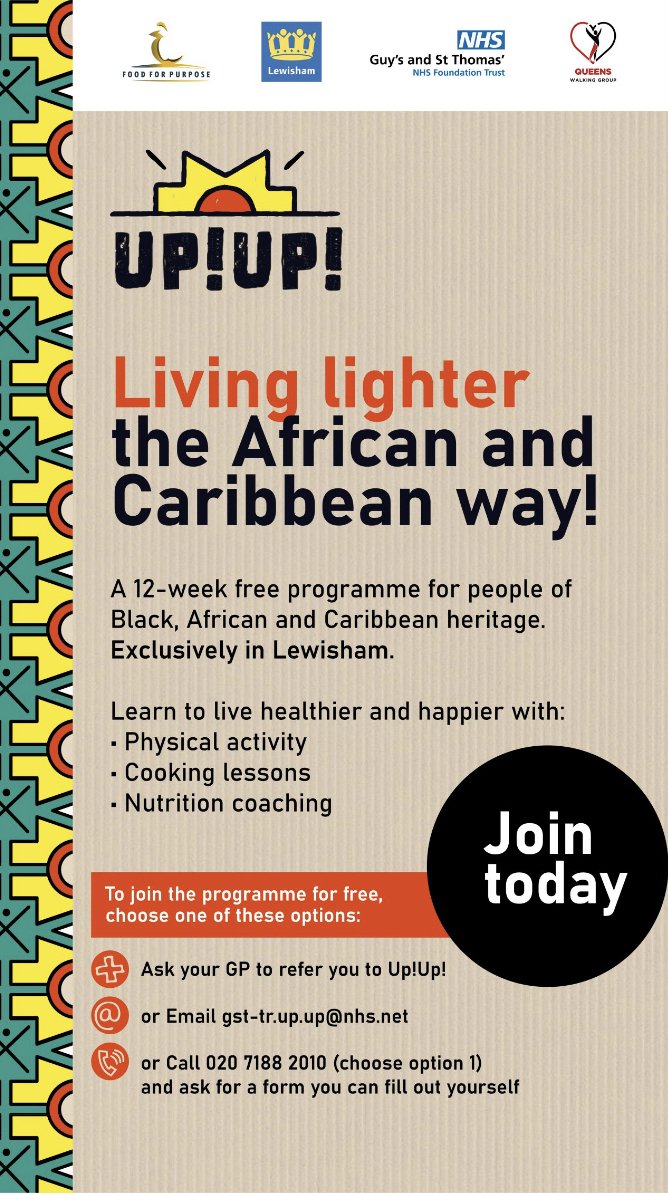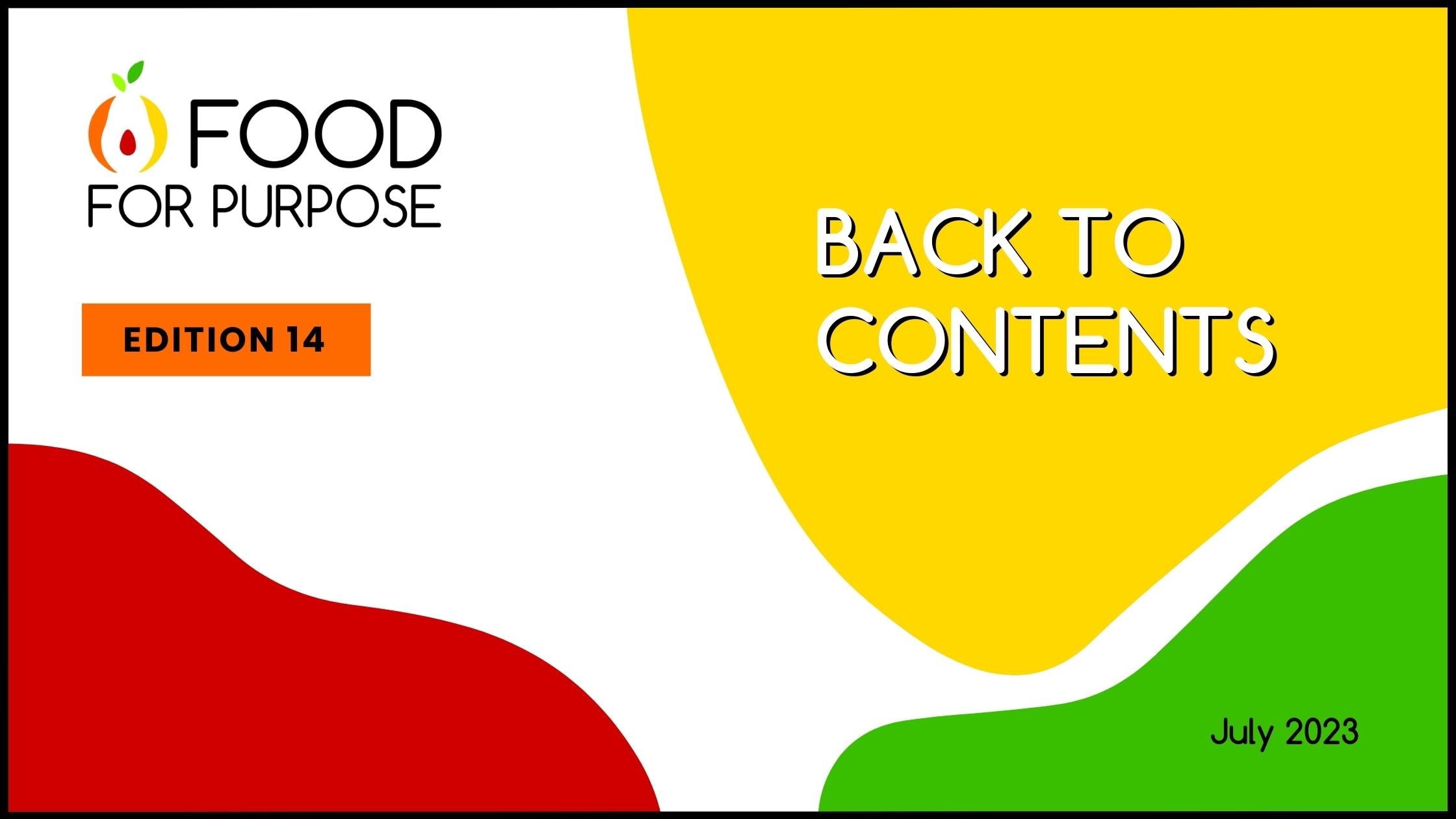Edition 14
July 2023
Destination Doctorate Part 2
By Shola Oladipo, Food for Purpose CEO
Hello friends,
It seems my sabbatical started with a bang! A few days in Florida served as a great rest and reflective recovery from the grind of full time entrepreneurship. Beautiful hotel, great food and ‘oooh the sun!
Just what I needed! 😎
As for the thesis, I had great intentions, I was going to write at least half a chapter and immerse myself in a few journals. However, the reality is that I was soooo tired I just couldn’t. Yes I felt a tinge of guilt, laced with a smidgen of pressure. But as I sipped my cocktail cooler at the poolside, (covered in copious sunscreen), I began to appreciate the importance of rest and the need to literally decompress my whole being. It was great…. I pulled the plug on my anxieties, fears and niggles, and consciously decided that I deserved to rest. The words of the 23rd psalm rang in my soul as I literally ‘allowed my soul to be restored.’
I am now asking myself: Why don’t I program rest and restoration into my project plans? Hmmm… I will talk about that next time.
Anyway, I encourage you to make rest a priority in any project you are planning. Diarise ‘me time’ and don’t feel guilty… it’s not a crime to step back and breathe. Whether it’s by the pool, a lake or even a bubble bath, take a moment and breathe.
God bless your hustle - whatever you are trying to achieve, He has got your back.
Featured this Month
CEO Says - Destination Doctorate - Part 2
Recipe of the Month - Barbeque (outdoor grilled) Plantain
A-Z of Soul Food - K is for Kola Nut
Special Guest Contributor - Christina Evwierhoma, Dietitian and Advisory Group Member
Food for Purpose News
Special feature on TBN
Food for Purpose features in an interview with Matt Parfait host of ‘All in’ on TBN. Check out the link below to hear how FFP all started!
Dietetic student placements
Students are back! We have 4 students from Nottingham University joining us for two weeks. Watch this space for the amazing projects they will be undertaking.
Up!Up! For Lewisham residents
If you or anyone you know, lives in Lewisham and would like FREE practical guidance on Nutrition and Physical Activity for a healthier lifestyle, then sign up to our 12 week programme today! Food for Purpose is part of the programme - we deliver their cooking sessions.
Trailblazer: Celebrating women in Nutrition and Health sciences
Listen to Shola talking to Dr. Mariette Abrahams from Qina about how the story of FFP unfolded, and the impact of women entrepreneurs
National Days / Weeks / Month - July
3-9th July 2023 - Alcohol Awareness Week
18th July 2023 - Black Leaders Awareness Day
18th July - 17th August 2023 - South Asian Heritage Month
Barbeque (outdoor grilled) Plantain
It’s BBQ season! BBQ or grilled Plantain is a must have! Plantain is a versatile starchy carbohydrate which can be baked, boiled, air fried. This recipe is a quick easy way to cook it on the BBQ. It’s quick, easy and tasty.
Ingredients
2 ripe plantains
Seasoned spray oil -‘home made’ (see instructions below)
Method:
Spray Oil
Add cooking oil eg Olive oil or vegetable oil to a clean dry spray bottle.
Add your favourite salt free seasoning or herbs to the oil. Suggestions include rosemary, thyme, curry leaves, pepper corns, chopped onion or garlic.
Cover the bottle firmly and shake, then leave the mixture to infuse for a few hours. Then it’s ready to use.
BBQ Grilled Plantain
Peel plantain and use a sharp knife to score them crossways into slices without fully cutting the plantain
Place plantain on a large spray oiled sheet of foil paper.
Try to keep the slices together in their original shape.
Spray the whole scored plantain about 3-4 times so that it is coated in the oil.
Wrap each plantain securely in the foil to create a parcel and place eon BBQ rack
Cook for 30 minutes on a hot grill until soft, unwrap and serve
Enjoy with grilled meat or fish or a sauce of your choice
Tips
Store oil in a cool dry environment out of direct sunlight
Avoid very soft plantains as they do not maintain their shape and would leak out of the foil and burn.
Bake plantain with some fish for a flavourful meal
A-Z of Soul Food
This month, we’re celebrating Kola nut for the letter K
Kola nut
Kola nut, also known as cola nut, is a popular stimulant and traditional plant medicine in many African countries. The kola nut is native to West and Central Africa, and is commonly found in countries such as Nigeria, Ghana, and Cameroon. The kola nut is an important cultural symbol in many African societies and is often used in social and religious ceremonies.
The kola nut is usually roasted or boiled before consumption. It is also commonly chewed raw as a stimulant. The roasted kola nut can be ground into a powder and used as a natural caffeine supplement. Kola nut is also commonly used in traditional medicine to treat a variety of ailments, including headaches, fatigue, and digestive issues.
Kola nut is a rich source of caffeine, with an average serving containing approximately 2-3 times more caffeine than a cup of coffee. In addition to caffeine, kola nut also contains theobromine and theophylline, which are also stimulants. Kola nut is also a good source of antioxidants, which can help protect the body from damage caused by free radicals.
Kola nut is available in a variety of forms, including raw, roasted, and ground. It can also be found in many natural health food stores as a supplement.
In addition to its traditional use as a stimulant and medicine, kola nut has also been used in the food and beverage industry for its flavour and caffeine content. Kola nut extract is a common ingredient in many soft drinks, including Coca-Cola and Pepsi.
While kola nut is generally safe for consumption in moderate amounts, it can cause side effects such as nervousness, anxiety, and insomnia if consumed in large quantities. It is important to consult a healthcare provider before using kola nut as a supplement or medicine, especially if you have any underlying health conditions or are taking medications.
In conclusion, kola nut is a versatile and important plant medicine and stimulant in many African countries. Its high caffeine content and antioxidant properties make it a popular supplement and ingredient in the food and beverage industry. While it can be found in some health food stores in the UK, it is important to consume kola nut in moderation and consult a healthcare provider before using it as a supplement or medicine.
Conquer Your Schedule and Stay Active
By Precious Oladipo, FFP Director & Fitness Lead
It can be extremely tough to slot in regular exercise when your schedule is packed out. Work, family commitments, and trying to balance a social life can almost seem impossible. Fear not, today we will be giving you some tips on how to stay active even when your schedule is tighter than your favourite pair of skinny jeans!
Mini Workouts
Who said that workouts need to take up so much of your time? Break it up and be active throughout the day. For example, if you’re waiting for your rice and stew to heat up in the microwave, do some squats whilst you wait. You could also do a quick workout whilst the adverts are playing TV, the minutes do add up!
Dance Party
Turn your chores into an extravagant experience. Turn up the music and dance like nobody’s watching…because they’re not! Dancing is a great form of exercise that contributes to your 150 minutes of physical activity a week. All you need to do is have fun!
Fitness Dates
Have you tried combining socialising with getting fit. Meet up with a friend and try out a new fitness class or activity. You can have a much needed catch up whilst staying active. Maybe you can slot in a post-workout lunch date too…
Lunchtime Adventure
Use your lunch break to fit in some activity. Take a walk to a nearby park or gather your colleagues together to play frisbee or tag (yes, tag – adults are allowed to have fun). This will help you keep fit and and have you ready to conquer the rest of the day.
Remember that being busy does not mean giving up on your health and wellbeing. With some creativity and determination, you can conquer your schedule and embrace an active lifestyle.
Managing Your Weight with Diabetes - Part 3
By Modupe Peters, FFP Director & Diabetes Lead
How are you getting on with your weight loss journey so far? Remember, it is a process, so don’t be too hard on yourself.
We will be looking at the Mediterranean diet in this third part of our series on managing your weight with diabetes.
What is a Mediterranean diet:
This is a diet largely based on plant foods and therefore includes lots of fruits and vegetables, beans, and pulses, nuts and seeds, wholegrains and olive oil. It also includes some dairy (milk and yoghurt), lean protein from chicken, eggs, and fish in moderation. Red meat and processed foods are usually consumed in smaller quantities, and wine is included - in moderation.
Mediterranean diets have been associated with reduced risk of high blood pressure and cholesterol which are risk factors for heart disease. There is evidence that the diet can promote weight loss and improve blood glucose management in people with type 2 diabetes.
Tips for losing weight on a Mediterranean diet:
Aim
to eat regularly, keeping to ideally three meals per day.
to have your main meal early in the day, ideally between 1-3pm
to include plenty of vegetables in your meals (making vegetables the main
component instead of starchy carbs)
to have adequate fluid intake consisting mostly of water – about 2 litres of fluid
daily.
to consume the right amount of olive oil – try not to exceed 3 tablespoons a day.
Regular physical activity is an essential element of the Mediterranean diet – so aim to move daily. The Mediterranean diet is a lifestyle change and as such, regular physical activity is an important part of the diet plan.
Below is a one-day sample meal plan to get you started on your Mediterranean diet lifestyle change, there are Mediterranean meal plans available on the Diabetes UK website - www.diabetes.org.uk
Sample Meal plan:
As mentioned above the diet is mainly plant based, you can therefore still enjoy your traditional and cultural dishes, keeping the starchy carbohydrates to smaller portions and ensuring they are of the wholegrain variety.
The Mediterranean diet is one of the many options to help you achieve your desired weight loss goal, please do speak to your healthcare team for support if you are planning to start a weight loss programme.
Special Guest Contributor
Christina Evwierhoma
Dietitian and Advisory Group Member
As a voluntary dietitian and advisory group member with Food for Purpose, I value opportunities to improve the health and well-being of members of my community. Health conditions like type 2 diabetes, cardiovascular diseases like heart disease and stroke, chronic kidney disease and overweight and obesity are common amongst people of African and Caribbean heritage and can greatly impact our lives. I believe that it is important for us to work together to support people to make lifestyle changes that will better their health, improve their health outcomes and with preventative measures stop people from developing these health conditions in the first place.
I have worked as a dietitian in the NHS supporting patients with a range of health conditions like chronic kidney disease. My patients have always appreciated working with someone who has an understanding of the food they eat and the cultural practices they follow and this is what is key about the work of Food for Purpose.
Through the faithful work of Food for Purpose we can God willing help you make faith based and evidence based steps to help you and your family stay healthy.
Greetings, one and all! How is everybody? 🥰 Happy New Month to you - here’s hoping July is full to the brim of everything you’d like it to contain😊
This month, inspired by Shola’s article - I thought I’d Explore Mindfulness with you 😀🧘🏾♀️
Mindfulness is a practice of intentionally focusing one's attention on the present moment without judgment. It involves being fully aware of one's thoughts, feelings, bodily sensations, and the surrounding environment. Mindfulness emphasises cultivating a non-reactive and non-judgmental attitude towards experiences.
Don’t forget - we’re always more than happy to consider the incorporation of any ideas you may have in terms of articles you’d like to see in Purposeful You in future👍🏾
Deep breathing exercises
Practice deep, intentional breathing to calm the nervous system and bring your focus to the present moment. Try techniques like diaphragmatic breathing or box breathing.
Meditation
Dedicate a few minutes each day to sit quietly and focus on your breath or a specific point of focus. Allow thoughts to come and go without judgment, gently returning your attention to the present moment whenever your mind wanders. Meditation helps cultivate mindfulness, reduce stress, and enhance mental clarity.
Mindful eating
Pay attention to the sensory experience of eating by savouring each bite, noticing the flavours and textures, and eating slowly.
Avoid distractions like screens or multitasking during meals.
Journaling
Set aside time for reflective writing to process your thoughts, emotions, and experiences. This practice can help you gain insight, reduce stress, and increase self-awareness.
Nature immersion
Spend time in nature, whether it's taking a walk in the park, hiking in the woods, or simply sitting by a body of water. Pay attention to the sights, sounds, and smells around you, allowing yourself to fully immerse in the present moment.
Mindful movement
Engage in activities like yoga, tai chi, or walking meditation, where you focus on the sensations and movements of your body. These practices combine physical exercise with mindfulness, promoting stress reduction and overall well-being.
Gratitude practice
Cultivate gratitude by regularly reflecting on and acknowledging the things you are grateful for in your life. This practice helps shift your focus to the positive aspects, reducing stress and fostering a more positive mindset.
Digital detox
Take breaks from screens and technology to reduce mental clutter and promote mindfulness. Designate specific times or areas in your day where you disconnect from digital devices and engage in activities that bring you joy or relaxation.
Mindful communication
Practice active listening and being fully present during conversations. Give your full attention to the person you are speaking with, and strive to understand and empathize with their perspective without judgment or distraction.
I have no clue what I’ll be sharing with you next time so make sure to check out our next edition when I’ll be serving you a generous portion of whatever on earth these are! 😂

Let's keep in touch
For general enquiries about Food for Purpose:
For Newsletter enquiries / content suggestions:











































